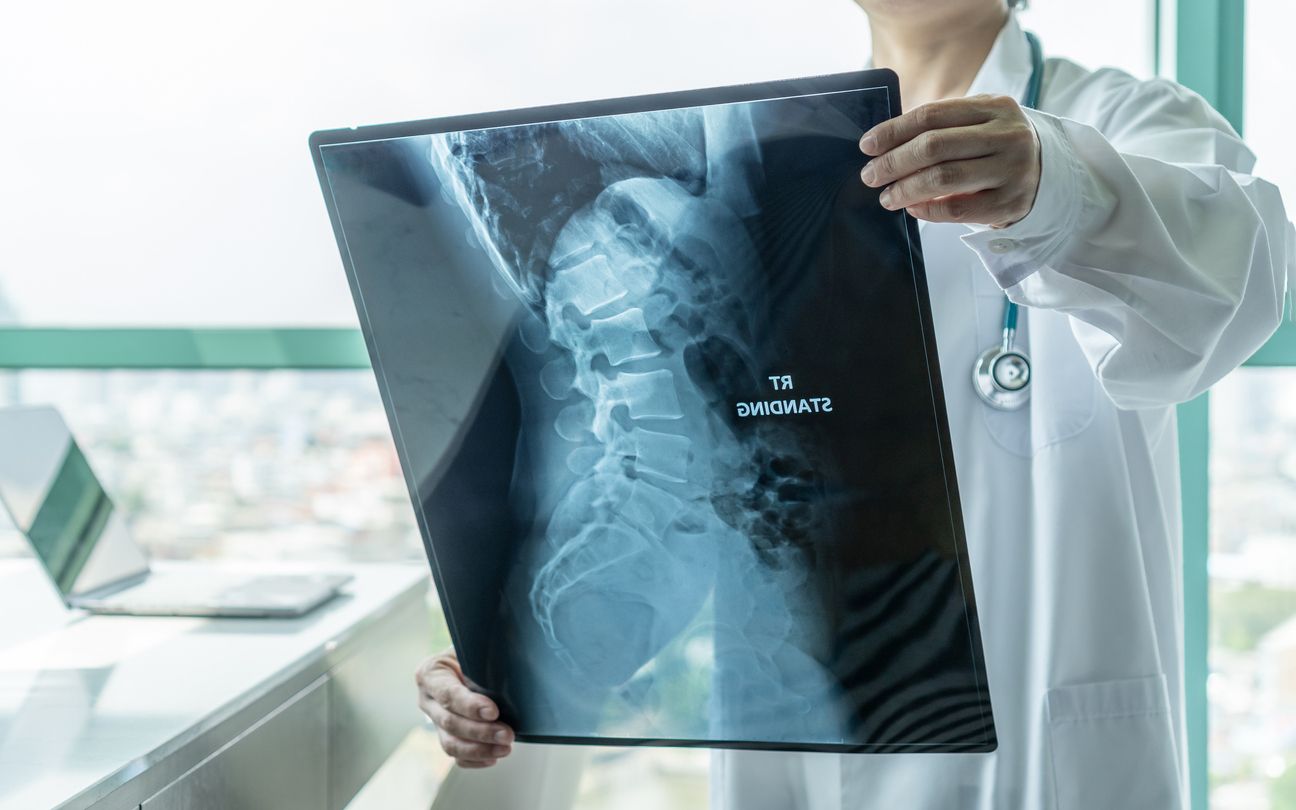Jill Kolodner | February 3, 2021 | Personal Injury

Herniated discs are a common accident injury. Typical locations for herniated discs in the neck are between the C4 and C5 vertebrae and between the C5 and C6 vertebrae. Herniated cervical discs can cause chronic pain, limited range of motion, and other impairments.
What Is an Intervertebral Disc?
There are seven bones (vertebrae) that make up the spinal column in the neck. They are numbered C1 through C7. Between each of the bones is a “cushion” called an intervertebral disc.
Intervertebral discs act as cushions between the bones to aid in movement. The discs also absorb shocks when you move or your body is suddenly jolted. They help prevent damage to the bones that would occur if the movement caused bone-to-bone friction.
At the center of each disc is a gel-like substance called the nucleus pulposus. The annulus fibrosus surrounds the gel-like material to keep it contained as the body moves or force is applied to the spinal column.
What is a Herniated Disc?
The gel-like material in the center of the disc may be pushed out or seep into the spinal column through a ruptured section or tear of the outer annulus fibrosus. The substance in the inner section of the intervertebral can irritate the nerves of the spinal column, causing severe pain. The disc may also put pressure on the spinal nerves, causing additional pain and discomfort.
Herniated discs are also referred to as slipped, bulged, or ruptured discs. The discs in the cervical column can become herniated, but the discs between C4/C5 and C5/C6 are common locations for herniated discs.
What Causes a Herniated Disc in the Neck?
Any blow to the neck could result in a herniated cervical disc. However, excessive force placed on the neck during an accident can also cause a ruptured disc. For example, the “snapping” motion of the head caused by a rear-end accident could place enough strain and force on the neck to cause a herniated disc.
Accidents and conditions that can lead to herniated intervertebral discs include, but are not limited to:
- Bicycle accidents
- Assaults and violence
- Car crashes
- Recreational vehicle accidents
- Motorcycle crashes
- Workplace accidents
- Boating accidents
- Slip and fall accidents
- Recreational and sports activities
- Truck accidents
When another party is responsible for causing the accident that resulted in a herniated disc, that party can be held financially liable for the victim’s damages. Damages caused by a herniated disc could include loss of income, the cost of medical care, physical pain, the cost of personal care, emotional distress, and other damages.
What Are the Symptoms of a Cervical Herniated Disc?
Herniated discs in the neck can cause a variety of symptoms. Pain is one of the most common signs of a herniated cervical disc. However, some people report numbness, weakness, and tingling in the shoulders, arms, and hands.
Accident victims should seek medical treatment after any neck injury, especially if they recognize any of the symptoms of a herniated disc.
Diagnosis and Treatment of Cervical Herniated Discs
A physician performs a physical examination to analyze the symptoms reported by the patient. The symptoms can assist physicians in determining the location of the herniated disc. Damage or injury to specific nerves can result in recognizable symptoms.
Doctors may order a variety of tests to diagnose herniated discs. CT scans, x-rays, MRIs, and nerve conduction studies are common diagnostic tools for cervical herniated discs.
The treatment plan the doctor orders depends on the severity of the injury. Many non-invasive, conservative medical treatments can provide relief from pain and improve movement and function. Treatments for herniated intervertebral discs might include:
- Pain medication
- Traction
- Collar immobilization
- NSAIDs (non-steroidal anti-inflammatory medications)
- Muscle relaxers
- Physical therapy
If conservative treatments do not provide relief, doctors might prescribe spinal steroid injections. Intrathecal pain pumps and spinal cord stimulation devices may also provide relief from pain. In severe cases, surgery may be required to treat a herniated cervical disc.
Filing Personal Injury Claims for Herniated Cervical Discs
If the herniated disc resulted from an accident, you could be entitled to compensation for your damages. However, you must prove that the other party caused the accident and the accident resulted in your injury. Therefore, prompt medical attention is necessary to document the injury.
Report all symptoms to your doctor and follow your doctor’s treatment plan. If an insurance adjuster for the other party contacts you regarding your injury claim, it is best to speak with a personal injury lawyer before talking to the insurance adjuster. Understanding your legal rights and how to protect those rights can help you recover maximum compensation for your injuries, pain, financial losses, and other damages.
Contact the Baltimore Personal Injury Law Firm of WGK Personal Injury Lawyers Today For Help
For more information contact the Baltimore personal injury law firm of WGK Personal Injury Lawyers to schedule a free initial consultation.
WGK Personal Injury Lawyers
14 W Madison St, Baltimore, MD 21201, United States
(410) 837-2144
WGK Personal Injury Lawyer – Dundalk Office
7329 Holabird Ave Suite 3, Dundalk, MD 21222
(410) 970-3080
